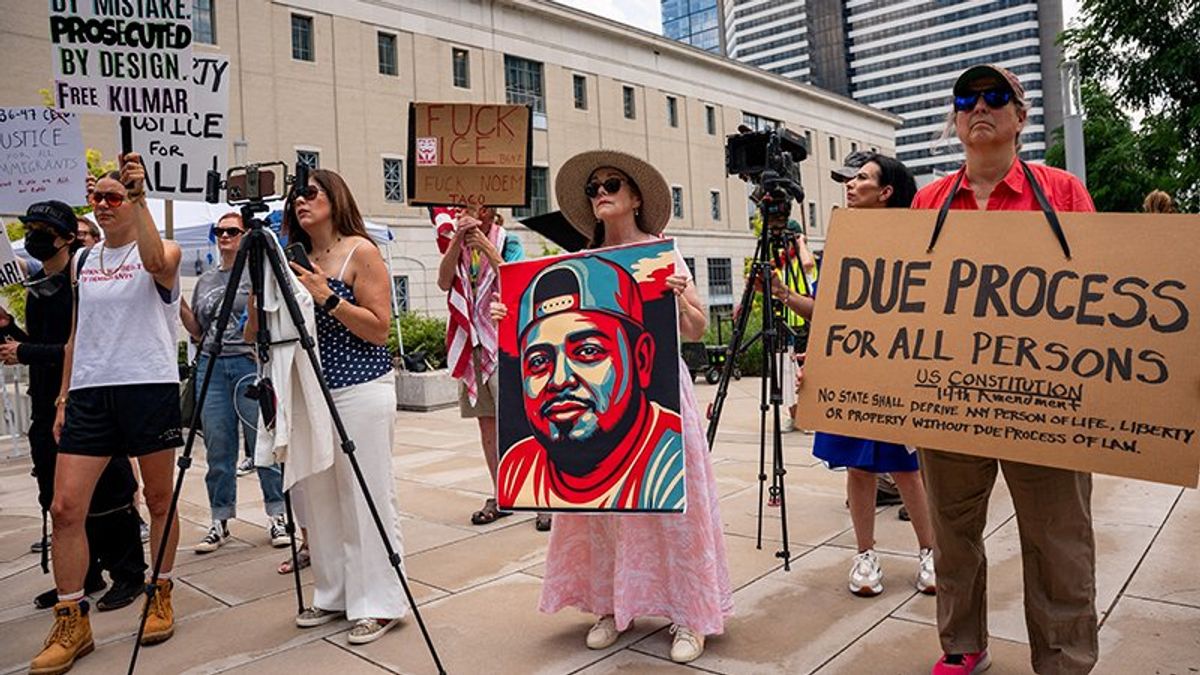
Judge Waverly D. Crenshaw Jr. presided over the Kilmar Ábrego García bail hearing on Wednesday and indicated that the Justice Department struggled to reach the high standard required to declare him a danger to the community.
"Obviously, the court is going to look at the issues...I'm having a hard time understanding your argument that there is by clear and convincing evidence no conditions that could control the danger posed by the defendant...that's a pretty high standard," said Crenshaw, according to Lawfare's Anna Bower, reporting from the Nashville, Tennessee, courthouse.
The bail hearing resulted in "blistering" exchanges between a Homeland Security agent and Ábrego's lawyer, Sean Hecker, according to one legal analyst in the courtroom.
The Justice Department alleged that Ábrego García was a flight risk.
"The MS-13 proof does not itself meet the clear and convincing standard...then you've got motivation to flee from ICE. Expand on that," the judge then asked.
Analysts have questioned the proof that Ábrego García is part of MS-13 after President Donald Trump claimed he had an MS-13 tattoo on his hand. That image was photoshopped to include that as an explanation of what Homeland Security thought his tattoos meant.
The DOJ said his wife alleged domestic violence in 2021, and the fact that he was "involved in a conspiracy" in 2022 shows there is a pattern of criminality. Ábrego García's wife recanted her accusations and explained in a statement that they came from her own insecurity about a previously abusive relationship that made her overly sensitive.
"I might give more weight to it if there was anything in the pre-trial services report that he missed court dates, or something to that effect," the judge continued. "But if he's on home detention, he can't exactly get in a car and transport people."
The judge addressed Ábrego García's lawyer, asking about the allegations of solicitation of images of a minor. Bower highlighted a piece James Pearce wrote for Lawfare that explained why there are legal questions about those allegations and whether, in fact, there were minor "victims" who were "involved."
The DHS agent claimed that Ábrego García would bring his children on "runs." But Ábrego García's lawyer remarked that nowhere in the statements from the cooperating witnesses is that claim made. There was also no evidence provided to support that allegation.
Ábrego García's lawyer also argued that allegations that he is a flight risk come from people who were responsible for forcing him out of the country.
The judge asked if any of the exhibits addressed the issue, and Ábrego García's lawyer said it didn't matter due to the "evolving testimony of cooperators and the relationship between the cooperators." The DHS agent revealed that all of the witnesses who cooperated with the agency were family.
The judge ultimately decided he would rule next week.
There is still an overarching issue of whether Immigration and Customs Enforcement would immediately arrest Ábrego García and deport him to a third-party country.
The judge in that case, Paula Xinis, said her ruling would be available before Ábrego García's hearing, but it was not posted prior to or during the bail hearing.




